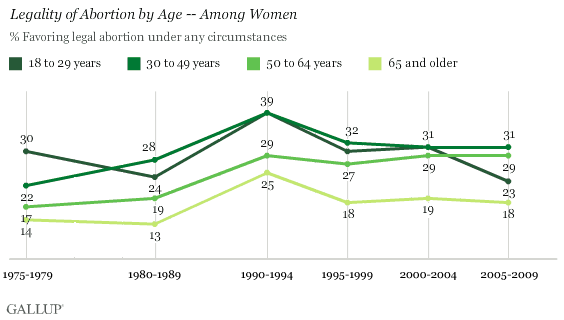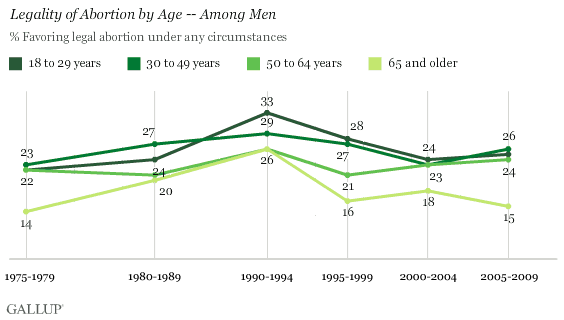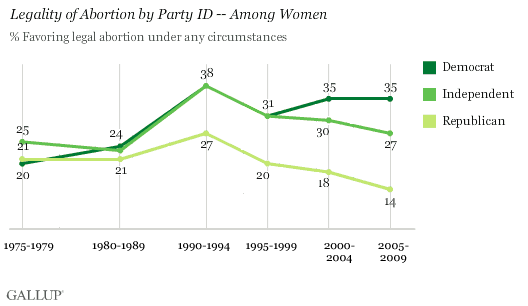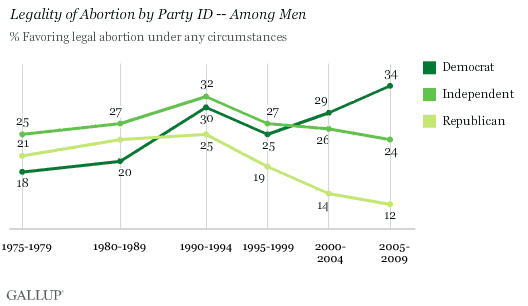PRINCETON, NJ -- Educational achievement is much more important than gender in determining support for broadly legal abortion, with college-educated adults -- and especially college-educated women -- the most supportive. This has been the case since the 1970s.
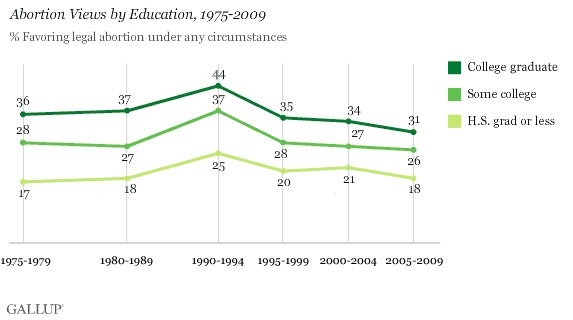
Gallup's long-term abortion question -- instituted two years after the 1973 Roe v. Wade ruling gave sweeping constitutional protection to abortion -- asks Americans to say whether they believe abortion should be "legal under any circumstances," "legal only under certain circumstances," or "illegal in all circumstances." The current analysis is based on Gallup trends grouped into six time periods between 1975 and 2009.
"Education is a strong correlate of support for abortion rights among both genders, with college graduates the most likely to say abortion should be legal in any circumstances."
Over the past three decades, men and women have consistently held similar views about the extent to which abortion should be legal. Typically, majorities of both sexes have said abortion should be "legal only under certain circumstances." Smaller percentages have believed it should be either legal under any circumstances or illegal in all circumstances -- with those in favor of legality consistently the larger group. Support for legal abortion "under any circumstances" reached its peak among both sexes in the early 1990s but has since receded some.
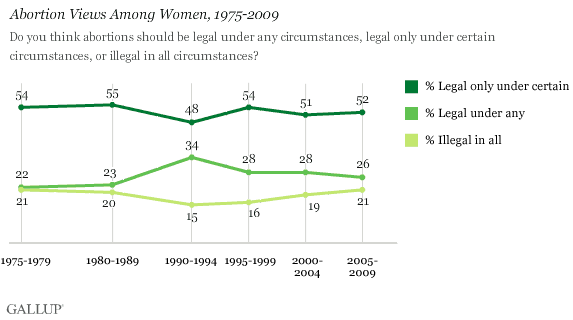
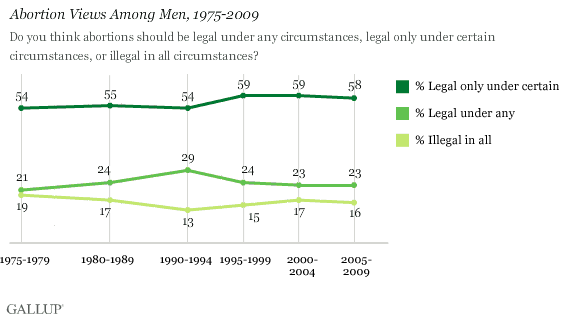
Women have in recent years been more likely than men to hold the two absolute positions on abortion -- saying it should be either legal under any circumstances or illegal in all circumstances -- but these differences are not large.
College Women Most Supportive of Legal Abortion
Education is a strong correlate of support for abortion rights among both genders, with college graduates the most likely to say abortion should be legal in any circumstances. However, in line with the broader societal trend, support among college graduates has fallen markedly since the early 1990s. These educational differences and trends are evident among both men and women.
Aside from the broader pattern, however, support for legal abortion in all circumstances among female college graduates has been about 10 percentage points greater than that among male college graduates. The gender gaps in views of adults who have lower education levels tend to be much smaller.
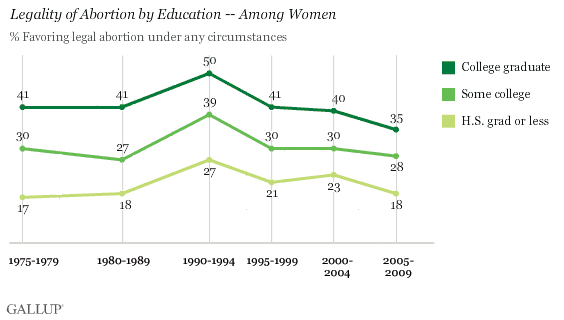
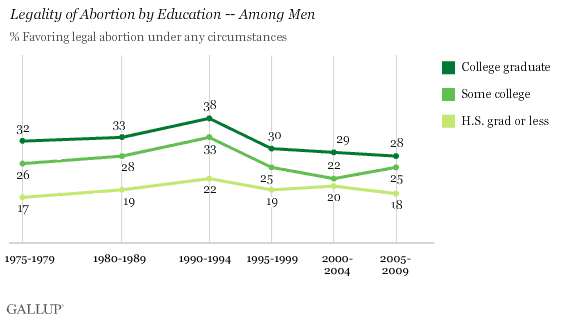
Gallup's earlier reports detailing long-term demographic trends found that attitudes have somewhat converged over time among different age groups (with the exception of seniors, who remain the least supportive of legal abortion) but have grown more polarized by party (with Democrats becoming more accepting of legal abortion and Republicans less accepting). These age and partisan patterns are seen about equally among men and women. (See tables on page 2 for details.)
Bottom Line
Gallup's abortion polling since the mid-1970s finds few remarkable distinctions between men's and women's views on the legality of abortion.
Overall, women are a bit more likely than men to hold one of the more absolute views on abortion: that it should be either legal under any circumstances or illegal in all circumstances. However, majorities of both genders take the middle "legal only under certain circumstances" position.
Within various age and partisan categories, men and women are mostly similar in their views. Only with respect to education, specifically those with a college education, is there a sizable gender gap. College-educated women are significantly more likely than college-educated men to believe abortion should be legal under any circumstances.
This is the third of a multipart Gallup series reviewing long-term changes in Americans' abortion views. Part 1 focused on trends by Party ID and Part 2 focused on trends by age.
The trends reported here are based on averages of Gallup's abortion surveys, from 1975 through 2009, by decade and half-decade. The individual surveys are based on interviews with a random sample of approximately 1,000 national adults, aged 18 and older. Aggregated sample sizes range from 4,078 for the period from 1980 to 1989 to 12,115 for 2000-2004. Aggregate sample sizes for men and women include at least 2,027 cases.
For results based on this size, one can say with 95% confidence that the maximum margin of sampling error is ±3 percentage points. Results based on education and age subgroups within gender have higher margins of error depending on sample size.
In addition to sampling error, question wording and practical difficulties in conducting surveys can introduce error or bias into the findings of public opinion polls.
